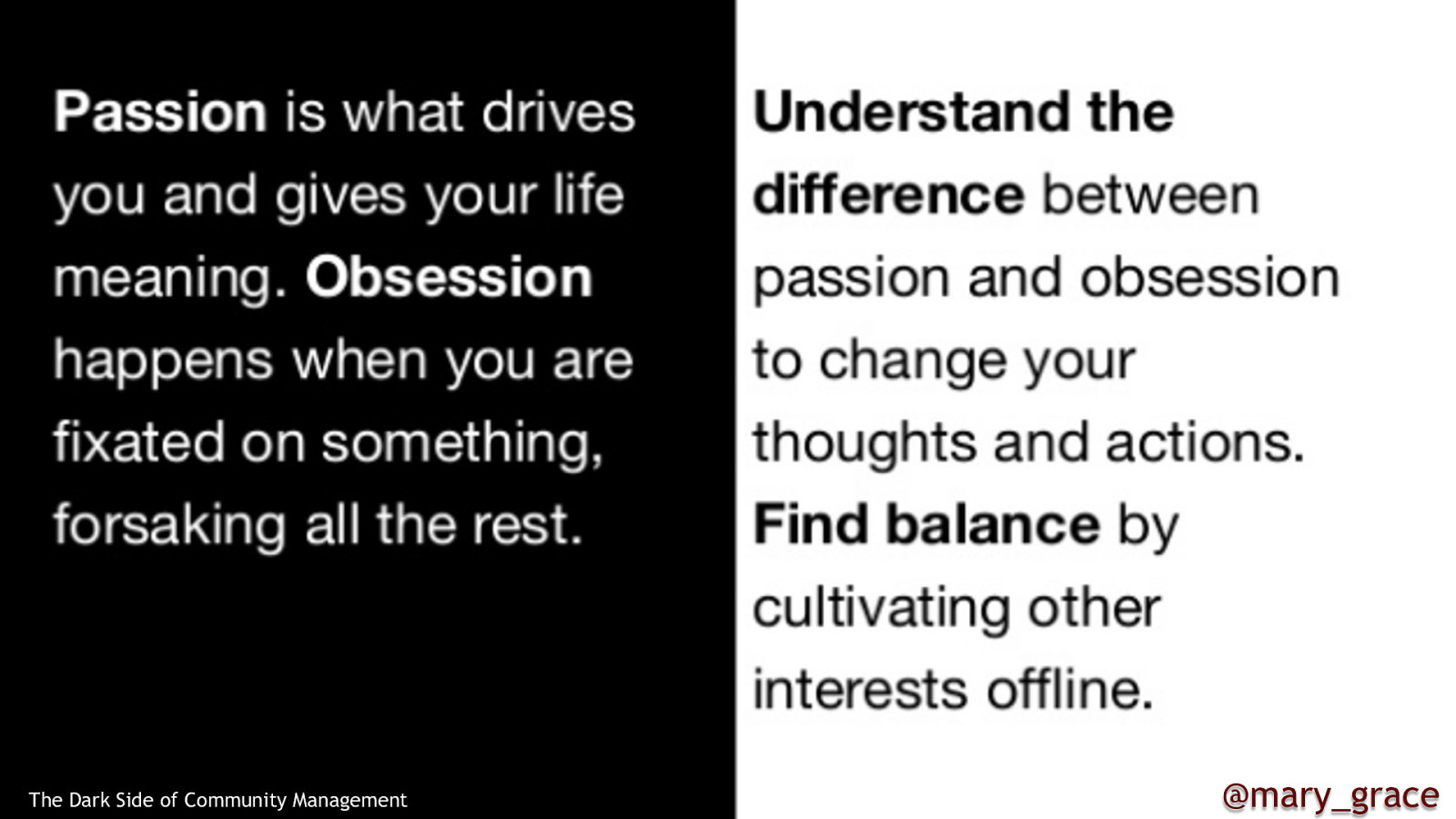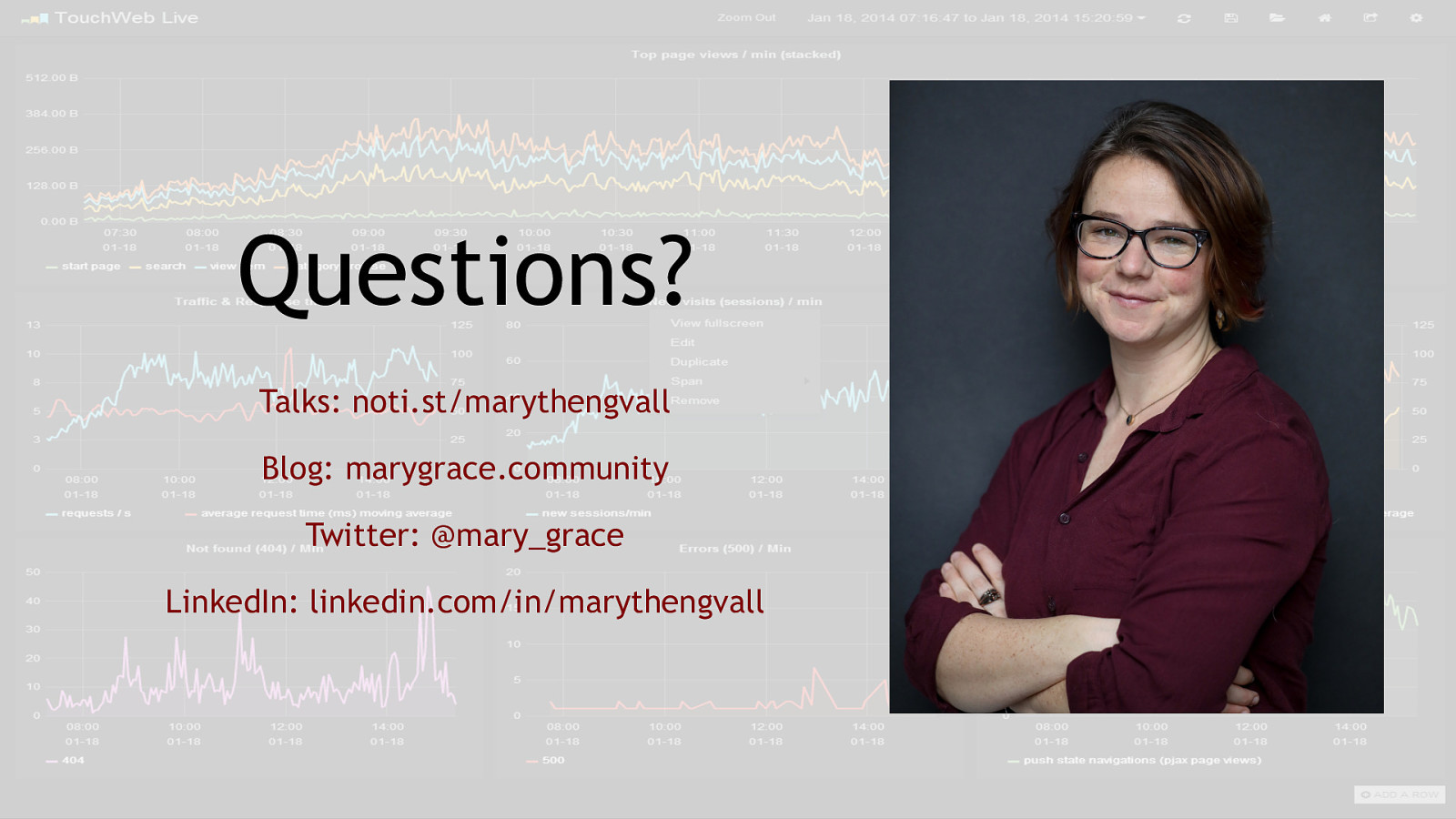Hi there! I’m Mary Thengvall. I know you’ve heard a lot over the past 24h about how to build a community, engage with community members, monitor your community, and more, and all of those things are very, very important! But I’m going to talk to you about something that I would argue is equally as important, if not moreso: monitoring ourselves – the ones who are responsible for the health and success of the community. - I’ll talk briefly about who I am and why it’s so important for me to monitor myself - But let’s be real… it’s not all about me ;) why is it so important for all of us to monitor ourselves? - We’ll talk about steps to take in order to prevent burnout in ourselves and in those around us 1






















